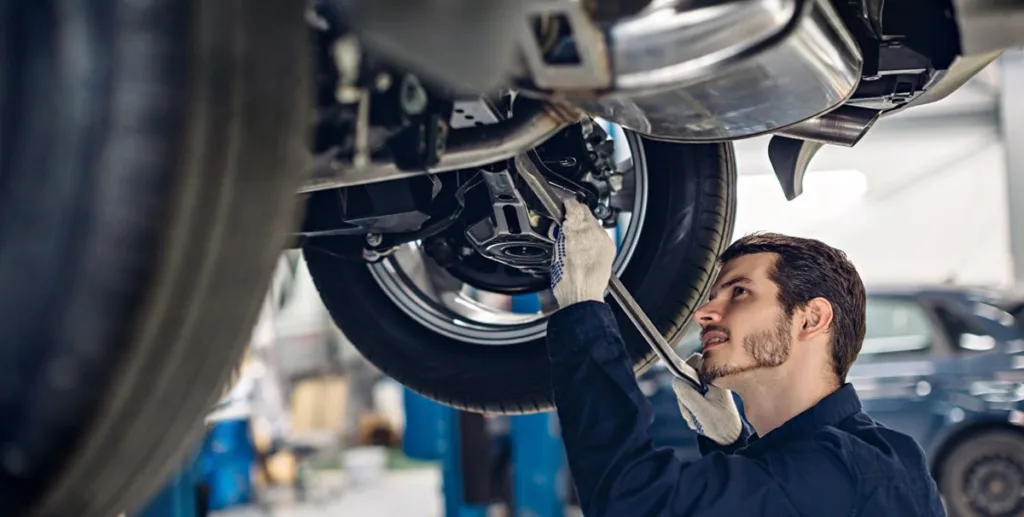All Categories
Featured
Routine engine tune-ups are important for preserving your car's performance, boosting fuel efficiency, and prolonging its lifespan. Whether you're a skilled automobile owner or a novice, comprehending the crucial aspects of an engine tune-up can assist you maintain your cars and truck running efficiently for several years. Here are some essential suggestions to assist you via the process.
- Modification the Spark Plugs. Ignition system are tiny yet magnificent elements that play a vital duty in stiring up the fuel-air mix in your engine. Over time, they can put on out or end up being fouled, resulting in poor engine efficiency, lowered gas performance, and hard beginnings.
Throughout a tune-up, evaluate your ignition system for wear and change them as needed. For a lot of vehicles, ignition system need to be replaced every 30,000 to 100,000 miles, relying on the kind and product. Fresh ignition system make sure efficient combustion and smoother engine operation.
- Check and Replace the Air Filter. The air filter is your engine's initial line of protection against dirt, particles, and other impurities. A clogged up or filthy air filter can restrict airflow, triggering your engine to work harder and consume even more fuel.
Inspect your air filter during a tune-up and replace it if it's dirty or previous its suggested solution interval. A clean air filter boosts engine efficiency and enhances gas economic climate.
- Inspect the Gas System. In time, your fuel system can accumulate dirt and carbon down payments, minimizing engine performance and gas efficiency. Cleansing the gas injectors and fuel lines during a tune-up aids preserve proper gas delivery and burning.
You can make use of a gas system cleaner or have an expert mechanic do an extra thorough cleaning. This action is specifically beneficial for older vehicles or vehicles regularly driven in stop-and-go website traffic.
- Evaluate the Belts and Hose pipes. Belts and pipes are essential for different engine features, such as running the generator, water pump, and air conditioning. Throughout a tune-up, check for fractures, fraying, or signs of endure these elements.
Change any kind of worn-out belts and hose pipes to avoid prospective break downs. A damaged belt or leaking tube can bring about engine getting too hot or loss of power, so resolving these problems without delay is vital.
- Change the Engine Oil and Oil Filter. Engine oil is essential for oiling relocating components, reducing friction, and managing engine temperature level. With time, oil becomes infected and sheds its efficiency.
As part of a tune-up, change the engine oil and oil filter. Make use of the kind of oil recommended by your automobile's maker and stick to the suggested change periods. Tidy oil keeps your engine running efficiently and avoids early wear.
- Test the Battery and Charging System. A healthy and balanced battery is necessary for starting your auto and powering its electrical systems. During a tune-up, inspect the battery's voltage and check the terminals for corrosion. Clean the terminals if needed and make sure a safe and secure connection.
Furthermore, test the alternator and billing system to ensure your battery stays billed throughout operation. If your battery is weak or old, consider changing it to avoid unexpected break downs.
- Flush and Re-fill the Coolant. The air conditioning system manages your engine's temperature, preventing it from overheating. Old or infected coolant can shed its effectiveness, leading to possible engine damage.
Throughout a tune-up, flush the old coolant and replace it with a fresh blend. Additionally, inspect the radiator, thermostat, and pipes for leaks or damages. Keeping the cooling system in excellent problem ensures your engine runs at the best temperature.

- Address Warning Lights and Unusual Signs. Modern vehicles are furnished with diagnostic systems that notify you to possible issues via dashboard caution lights. If your check engine light or any type of various other cautioning signs are on, address them during your tune-up.
In addition, pay attention to uncommon signs such as odd sounds, rough idling, or lowered fuel efficiency. A professional auto mechanic can detect and fix these issues throughout the tune-up procedure.
- Do Not Neglect the Exhaust System. Your auto's exhaust system removes dangerous gases from the engine and makes sure proper emissions. Examine the exhaust system for leaks, corrosion, or damage during a tune-up. A malfunctioning exhaust system can impact engine performance and lead to ecological and safety problems.
- Use High-Quality Parts and Fluids. When replacing parts or complementing liquids during a tune-up, constantly choose top quality items that meet your automobile's requirements. Making use of substandard components or wrong fluids can adversely affect your engine's efficiency and durability.
Conclusion: Regular Tune-Ups Are Trick to Engine Health And Wellness. Putting in the time to tune up your engine ensures it runs effectively, conserves fuel, and reduces the danger of break downs. Whether you carry out these tasks yourself or rely upon a trusted technician, normal tune-ups are an investment in your automobile's reliability and durability. Adhere to these suggestions, and you'll delight in a smoother, much more dependable ride for several years to find.
Latest Posts
Dependable Commercial Roofing Providers by Weathercraft
Safeguard and Enhance Your Home with Weathercraft's Siding Providers
Find the Premier Auto Repair Coupons in Montclare, Chicago
